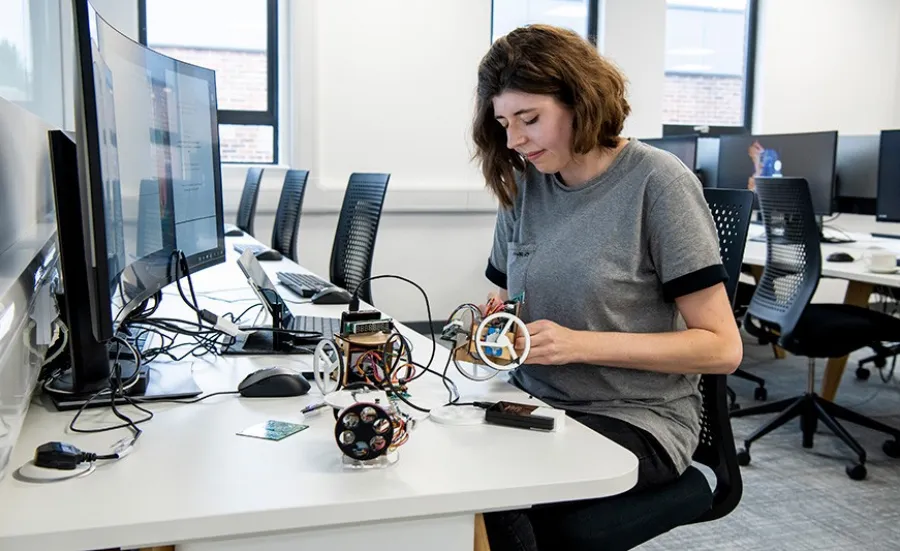Current research degree projects

Explore our current postgraduate research degree and PhD opportunities.

Explore our current postgraduate research degree and PhD opportunities.

This project will design and validate an artificial oral environment for the physiological simulation and mechanistic study of enamel loss through erosion, abrasion and a synergistic combination of both.
This project aims to merge state-of-the-art acoustics, physics-based modelling, and cutting-edge artificial intelligence (AI) to advance hydrogen leak detection in complex environments. It drives innovation at the intersection of applied mathematics, physics, machine learning, and clean energy.
During adolescence a quiet transformation is taking place in our limbs; when the growth plate fuses we fundamentally alter our biomechanics. This project aims to better understand this critical process to protect our future joint health.
Quantum sensors may permit long-range navigation when satellite systems cannot be used. This project will develop a quantum inertial sensor simulator, built around experimentally validated computational models, to provide real-time simulated data from actual motions, so that navigation engineers can explore quantum integration ahead of real quantum device availability.
Cargo bikes are promoted as a sustainable alternative to car-based travel, but their use as care infrastructure in a family setting is under-explored. This project seeks to investigate how these technologies function within family contexts and how their use may shape everyday mobility practices, children’s experiences, and transport equity.
This project develops AI-enhanced threat-modelling techniques to improve the cybersecurity and resilience of autonomous vehicles. It analyses vulnerabilities in AI-driven sensing and decision systems, models complex adversarial interactions, and designs adaptive detection and mitigation strategies, with applicability to other safety-critical domains.